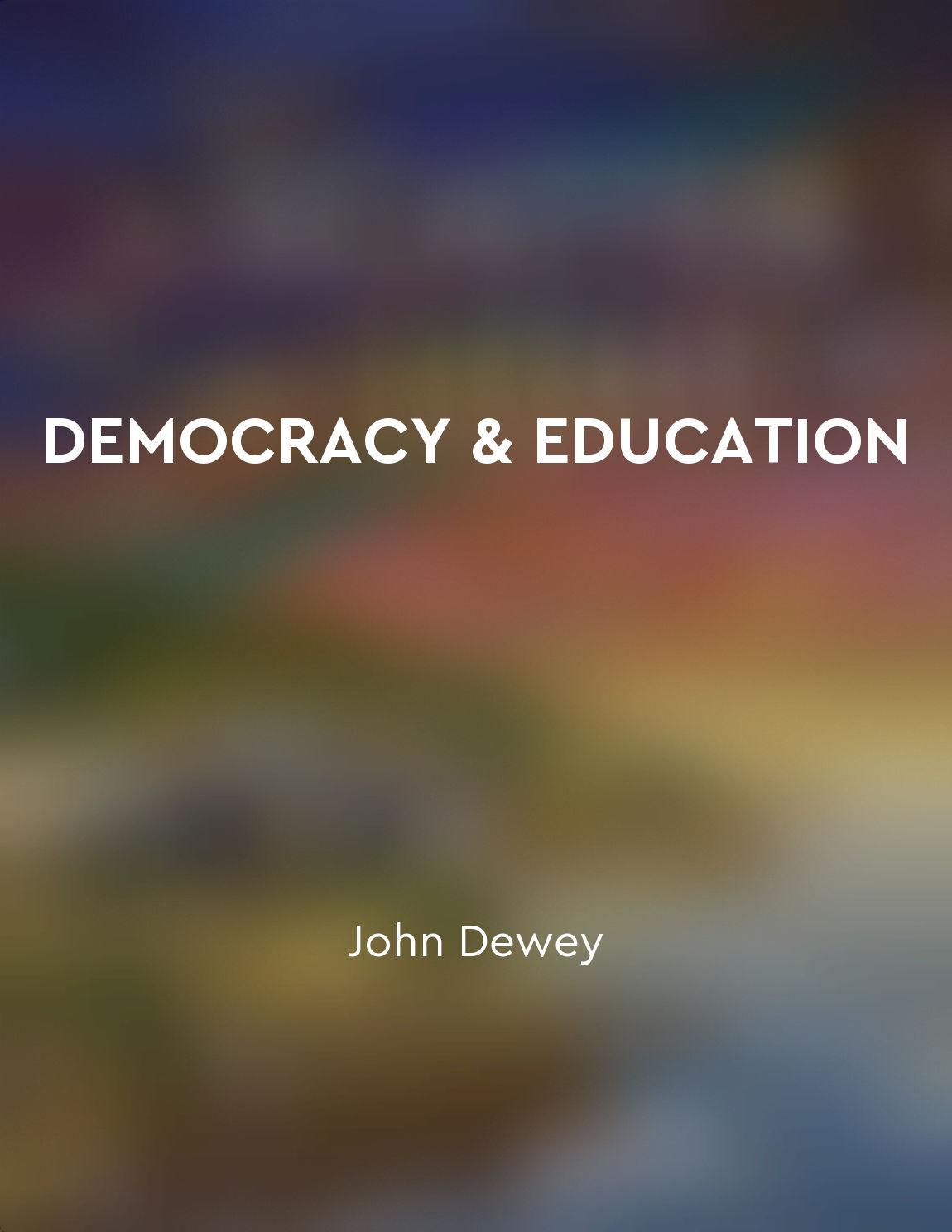Audio available in app
The politics of knowledge influence educational practices from "summary" of Education and Power by Michael W. Apple
The ways in which knowledge is valued and transmitted within educational institutions are deeply intertwined with larger power dynamics in society. This means that the content of what is taught in schools, as well as how it is taught, is not neutral or objective, but rather shaped by the interests of those in positions of power. These interests can manifest themselves in various ways, such as through the promotion of certain ideologies, worldviews, or cultural norms that serve to maintain existing power structures. Educational practices are influenced by the politics of knowledge in several key ways. For example, the curriculum that is taught in schools often reflects the dominant perspectives of the society in which it is situated. This means that certain knowledge is privileged over others, reinforcing existing hierarchies of power and marginalizing alternative ways of thinking. In addition, the methods of instruction used in classrooms can also be influenced by the politics of knowledge, with some approaches being valorized while others are marginalized or excluded. Furthermore, the ways in which knowledge is produced and disseminated within educational institutions are themselves subject to political processes. This can include decisions about which voices are included or excluded in the creation of curricular materials, the ways in which knowledge is validated or legitimized, and the mechanisms through which knowledge is transmitted to students. These processes are often shaped by the interests of those in power, leading to the reproduction of certain forms of knowledge while marginalizing others.- The politics of knowledge play a crucial role in shaping educational practices and outcomes. By understanding the ways in which knowledge is valued and transmitted within educational institutions, we can begin to critically examine the underlying power dynamics that structure our educational systems. This can help us to work towards more equitable and inclusive forms of education that challenge existing hierarchies of power and promote a more democratic and just society.
Similar Posts
Strategies for effective teaching
The key to successful teaching lies in the implementation of effective strategies that cater to the diverse needs of students. ...

Schools should promote social equality
The idea that schools should promote social equality is rooted in the belief that education is essential for the development of...

Greek citystates fostered intellectual and cultural growth
The Greek city-states were small, independent communities that flourished during ancient times. These city-states were not only...
Cognition influences societal behavior
The way we think—our cognition—shapes the way we behave in society. Our beliefs, values, and ideologies are all products of our...
No Child Left Behind Act had mixed results
The No Child Left Behind Act was a significant piece of education legislation that aimed to improve student achievement and clo...
Hope lies in collective action
Hope lies in collective action. Throughout my experiences as an economic hit man, I have witnessed the power that comes from in...

Entertainment and media shaped popular culture
Entertainment and media have played a significant role in shaping popular culture throughout history. From ancient civilization...
Emotions can impact the exercise of power
The way we feel can significantly influence how we wield power. Our emotions have the power to shape our decisions and actions,...
Imagined communities provide a sense of belonging
The idea of imagined communities is a powerful one. It suggests that people from different backgrounds can come together and fe...
Students should be taught to question authority
Students should be taught to question authority. Many people assume that questioning authority is disrespectful or rebellious. ...

